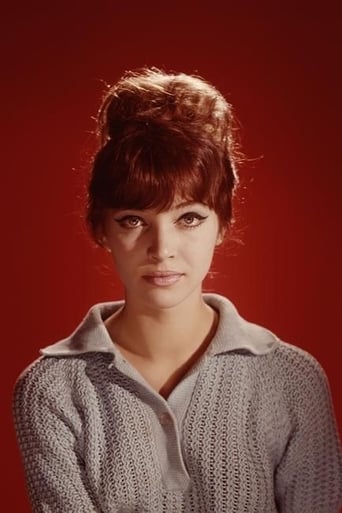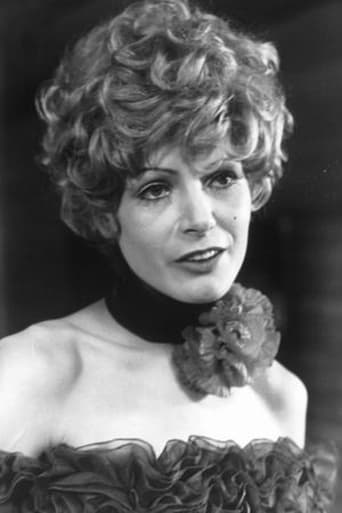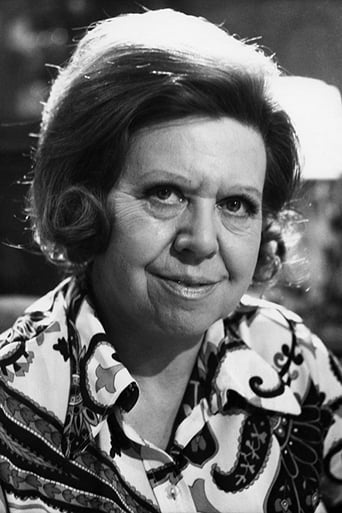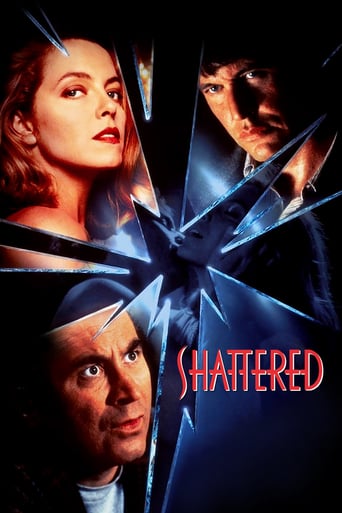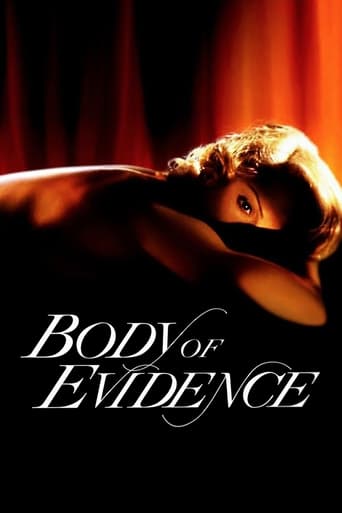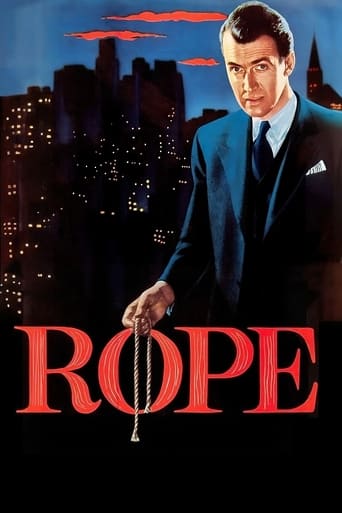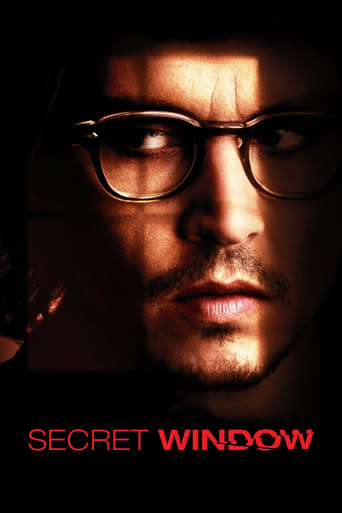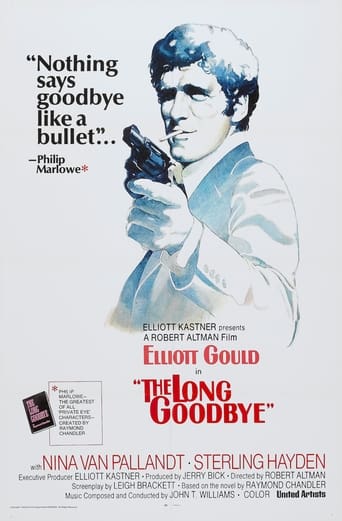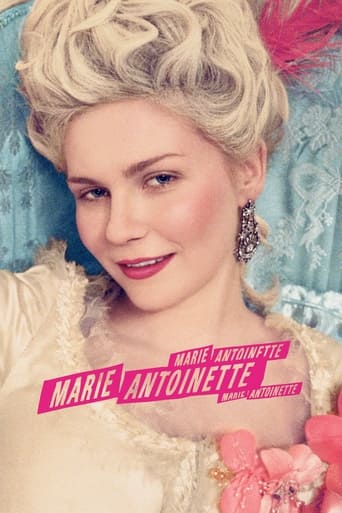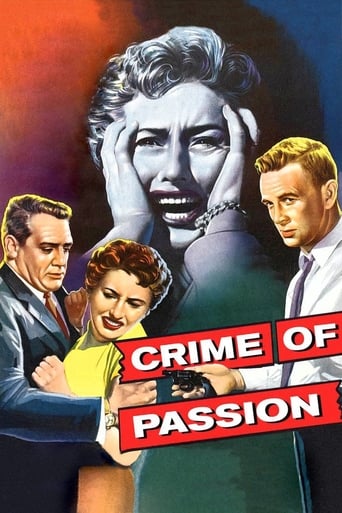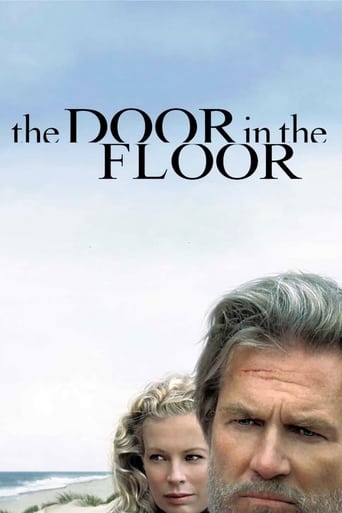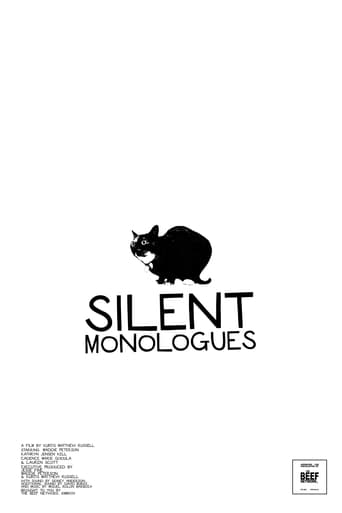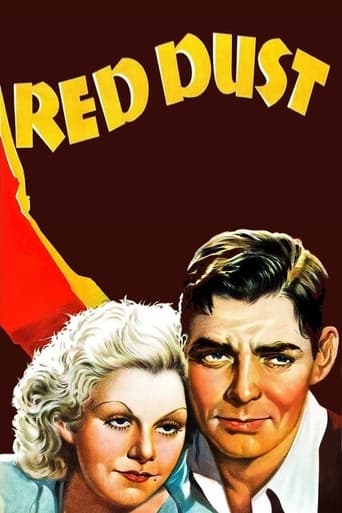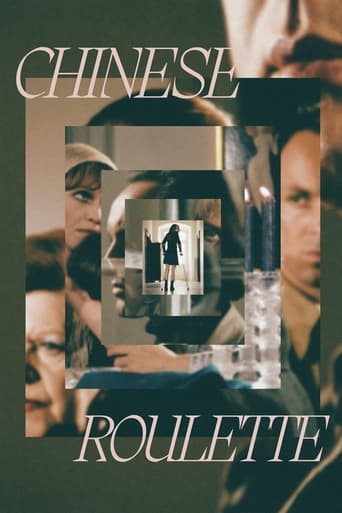
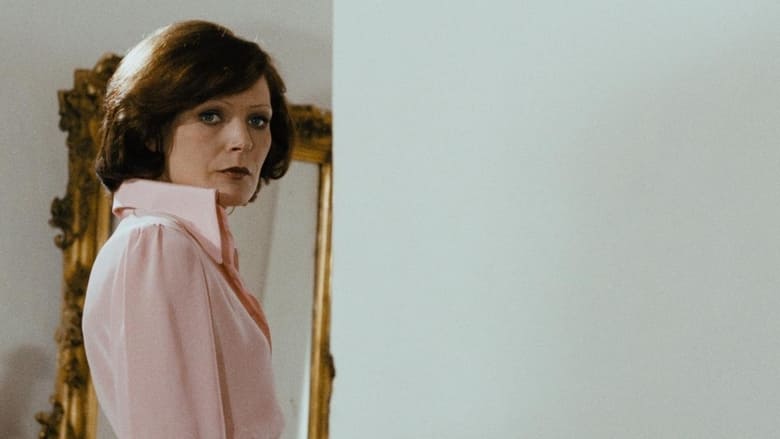
Chinese Roulette (1977)
A husband and wife lie to each other about their weekend travel plans, only to both show up at the family's country house with their lovers.
Watch Trailer
Cast


Similar titles
Reviews
Such a frustrating disappointment
Just perfect...
I like movies that are aware of what they are selling... without [any] greater aspirations than to make people laugh and that's it.
By the time the dramatic fireworks start popping off, each one feels earned.
Believing that her parents' longtime extramarital affairs caused her physical ailments, a teenage cripple arranges for both sets of adulterers to unexpectedly meet at a country home in this Rainer Werner Fassbinder thriller. The film is gloriously photographed by Michael Ballhaus, with the camera giddily spinning around to reflect nervousness when the four adulterers first meet, and the very deliberate framing (some actors turned to faced the camera; others not) throughout adds tension. The juice of the film comes from both the girl's initially elusive motives and the sense of emotions about to explode; at one point, her own mother almost shoots her through an open window. Oddly, the film never explores why the daughter has more hostility towards her mother (and vice versa) than her father, but this aside, the only significantly underwhelming aspect of the film is the title game. Nowhere near as dangerous as Russian roulette on the surface, Chinese roulette -- a game that seems to only exist in the film's universe -- is merely a guessing game of sorts, albeit one in which deep resentment is able to surface. Whatever the case, the film is a surprisingly tense ride considering the minimal sets and small cast. It also offers food for thought in terms of who is to blame and whether indeed the girl's parents brought the situation upon themselves through emotionally (if maybe not physically) injuring their daughter.
The scenario is promising: a manipulative crippled daughter, estranged parents and their new lovers, the promise of a game of Chinese roulette, potentially sinister or magical caretakers of a mansion... There were so many interesting things that might have happened... Perhaps with a mid-script overhaul this could have been a cool horror movie.But the finished product is a lot of sound and fury signifying nothing. The cast are like a bunch of stilted marionettes staring at each other, saying abstract things. People behave like directionless props; there's no tension or drama, and nobody cares. I believe there may have been some kind of master plan at work here, but something got sucked out of it between concept and page and the whole thing is just empty and pointless.A movie with great potential, but it needed about 12 more rewrites than Fassbinder gave it.
A family of rich industrialists has one child - a teenage daughter crippled by some disease she caught 11 years before (probably Muscular Dystrophy). She has every luxury imaginable, and her parents are superficially polite to her - but underneath, they despise her. Her mother, especially, hates her enough to kill her; yet she maintains the appearances of a caring parent.Both parents have adulterous affairs going - ever since the daughter Angela became crippled by her illness, as the girl sweetly informs us. They both go off to their country chateau at different times on various pretexts, and turn a blind eye to what the other spouse is probably doing. Angela is left in a glittering emotional desert, a gilded cage; her only source of companionship is her mute governess/nanny, a pleasant young lady with a mischievous smile.Angela has grown to be as elegant and cruel as the people around her, although we can sympathies because we see that there was no way she could learn better behaviour - I like to compare her to Catherine Sloper at the end of The Heiress (1949). She arranges matters so that both her parents book the chateau for the same weekend; so one adulterous couple surprises the other "in flagrante delicto". Being civilised people, they laugh it off and sit down to dinner, determined to enjoy the weekend as a party - but then Angela and the governess turn up. Angela is the most perfect portrayal of a "yuppie b*tch", but we can still feel for her. (At one point she asks the caretaker's son, "Would you be able to love a cripple", and his silence tells us all we need to know.After she has installed herself at the chateau, she drags herself around the hallways opening various bedroom doors and peering maliciously at the adulterous couples inside; they stare back in unhappy resentment. Later the couples propose to relieve their boredom by some game, so the mother comes up with a bright idea: target shooting! She forthwith aims a pistol out at the courtyard where her daughter is hobbling along; it takes the "other woman" to gently restrain her by holding her hand.Later, at supper, Angela proposes that they should play her favourite game, "Chinese Roulette", in which one group tries to guess the identity of some individual selected by the other group, by means of indirect questions. The questions become increasingly ruthless and cutting; it becomes apparent that this game is as fiendish as Chinese torture and as deadly as Russian roulette, though it uses words instead of bullets. I don't believe in spoilers, so I won't tell you how it ends.The photography in this movie is absolutely stunning; many of the scenes are shot through (or reflected in) glass, suggesting the glittering falsehood and superficiality of these people's lives. The colour composition is exquisite, words cannot really describe it. The slow movements of the characters are choreographed almost like ballet. The spooky music is just used at intervals making this feel like a horror movie (which it really is). Fans of "evil child" movies should check out this one, which raises everything to the max.The director, R. W. Fassbinder, said that he wanted to portray what happens when parents fail to love their children. RWF has a reputation for making art movies with obscure meanings, but this isn't one of them - it's a very rewarding experience, I urge everyone to see it. Everyone is entitled to make the odd clunker, and the guy hit the mark more often than not.
Like most Fassbinder films, it's seemingly simple, but there's a lot too it when you walk a bit closer. This one sets up a great tragicomic situation: a disabled teenager manipulates her parents each to bring their lover to their summer mansion for the weekend. When the father arrives with his lover (Anna Karina, in a very quiet role), he finds his wife pinned to the floor by her boy toy. A bit later the daughter arrives with her caretaker (and possibly her lover?) who is deaf and mute. Mrs. Kast and her blonde son, Gabriel, take care of the mansion, cook, and so forth. Kast is played by Brigitte Mira, who was so wonderful two years earlier in Fassbinder's Fear Eats the Soul. She's a lot more cruel in this one.With the situation as it is, their true characters quickly rise to the surface. The parents get the most time; father is loving in his way, but his love is probably only a result of the guilty feelings he has towards his daughter. Mother, on the other hand, is quite the psycho. At one point, as she sees her daughter lumbering along on her crutches from a second story window, she picks up a pistol and aims it at her daughter's back. She uses no euphemisms: her daughter, she believes, has ruined her life. Fassbinder's direction is exquisite. His framing is so complex, but it's invented to look simple. The simple set might be called stagey by those who are not paying enough attention. When the four lovers meet, Fassbinder circles the camera around them as they pace around each other, creating a dizzying dance. Peer Raben's gorgeous and unique music also should be pointed out.Not everything works out perfectly. The titular game is an interesting idea to do on film. The eight characters split into two groups, the first picks a person in the house and the second has to guess after they've asked a certain number of questions. I think Fassbinder has a difficult time making the questions and answers meaningful for the film as a whole. These exchanges get a little ponderous as a result, and the only thing that keeps the sequence alive is Raben's score. Like I said, it was quite a daring thing to do, so the fact that it doesn't work out perfectly doesn't harm the film too much. 9/10.


